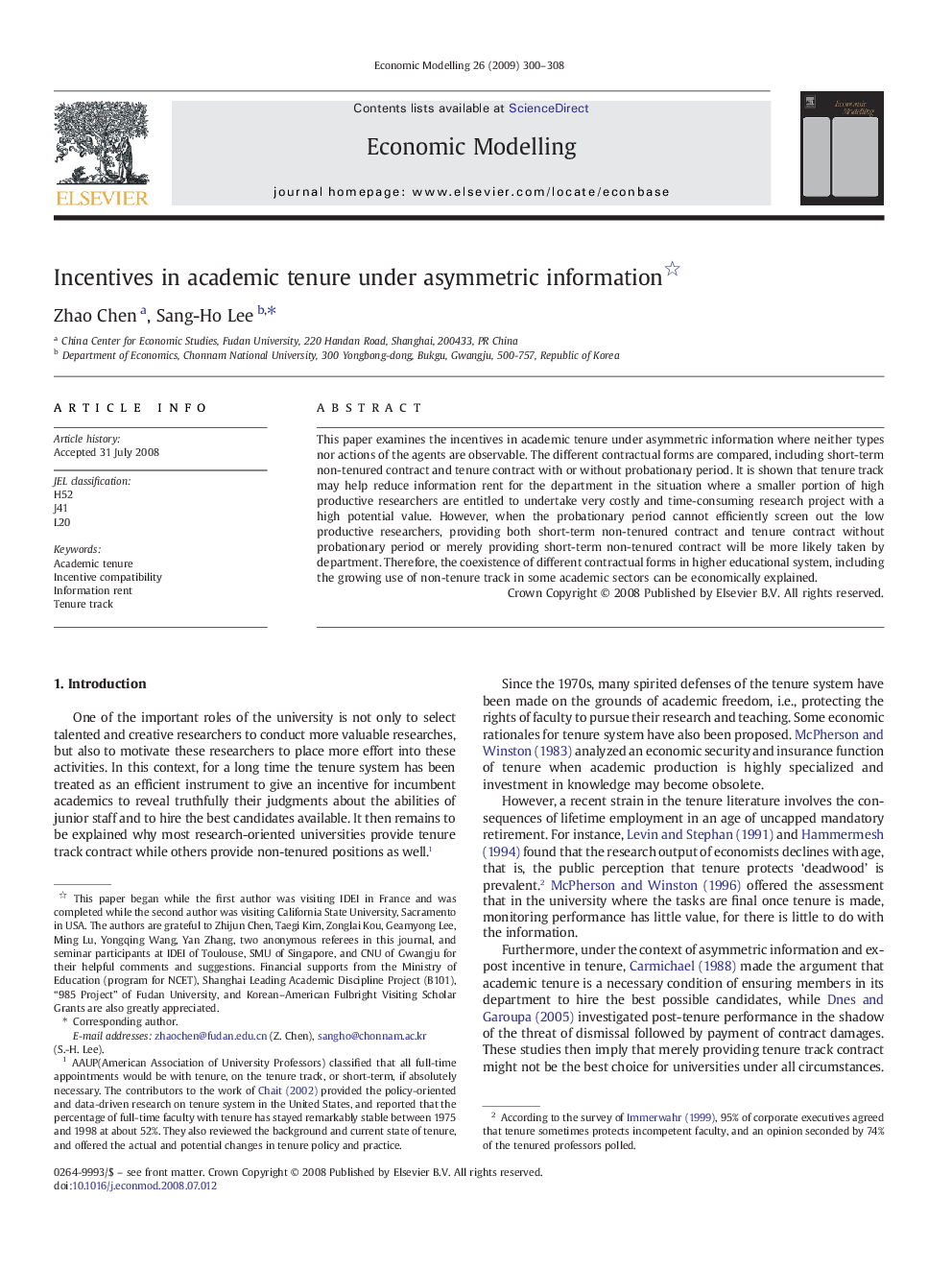| Article ID | Journal | Published Year | Pages | File Type |
|---|---|---|---|---|
| 5055331 | Economic Modelling | 2009 | 9 Pages |
This paper examines the incentives in academic tenure under asymmetric information where neither types nor actions of the agents are observable. The different contractual forms are compared, including short-term non-tenured contract and tenure contract with or without probationary period. It is shown that tenure track may help reduce information rent for the department in the situation where a smaller portion of high productive researchers are entitled to undertake very costly and time-consuming research project with a high potential value. However, when the probationary period cannot efficiently screen out the low productive researchers, providing both short-term non-tenured contract and tenure contract without probationary period or merely providing short-term non-tenured contract will be more likely taken by department. Therefore, the coexistence of different contractual forms in higher educational system, including the growing use of non-tenure track in some academic sectors can be economically explained.
